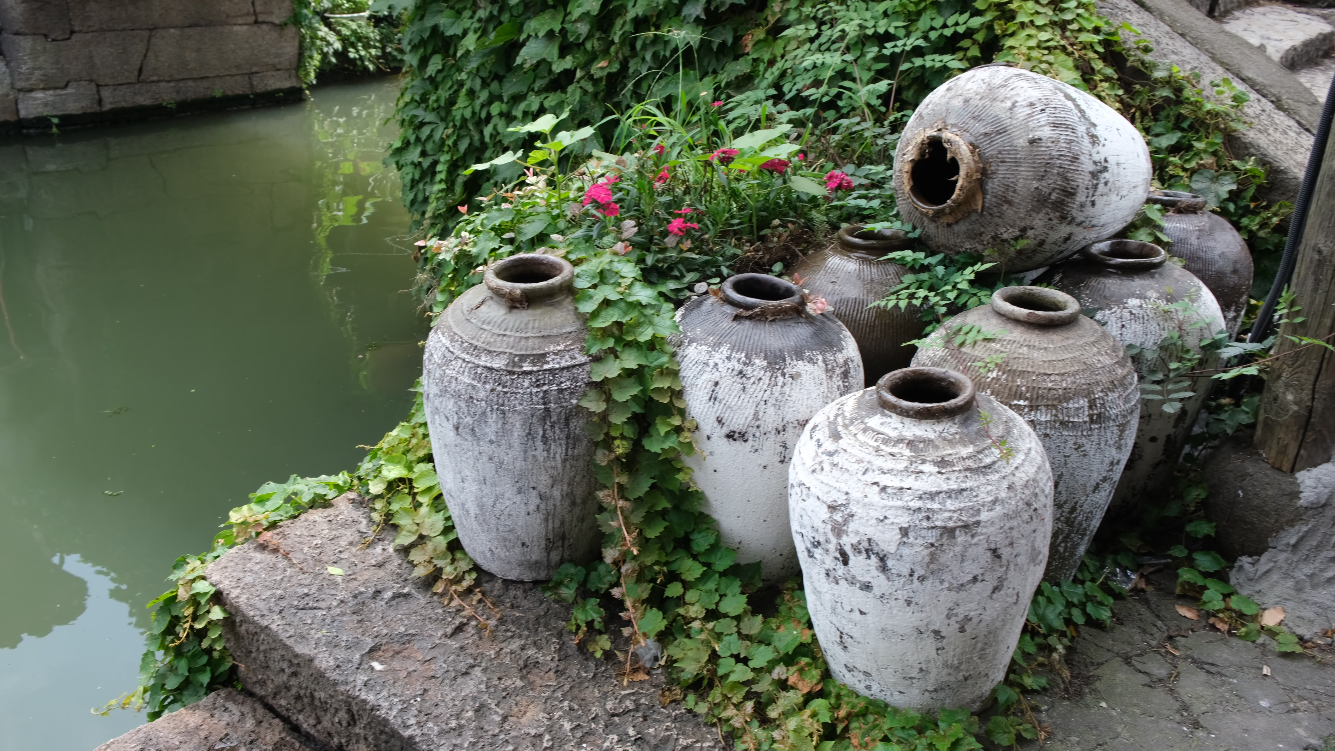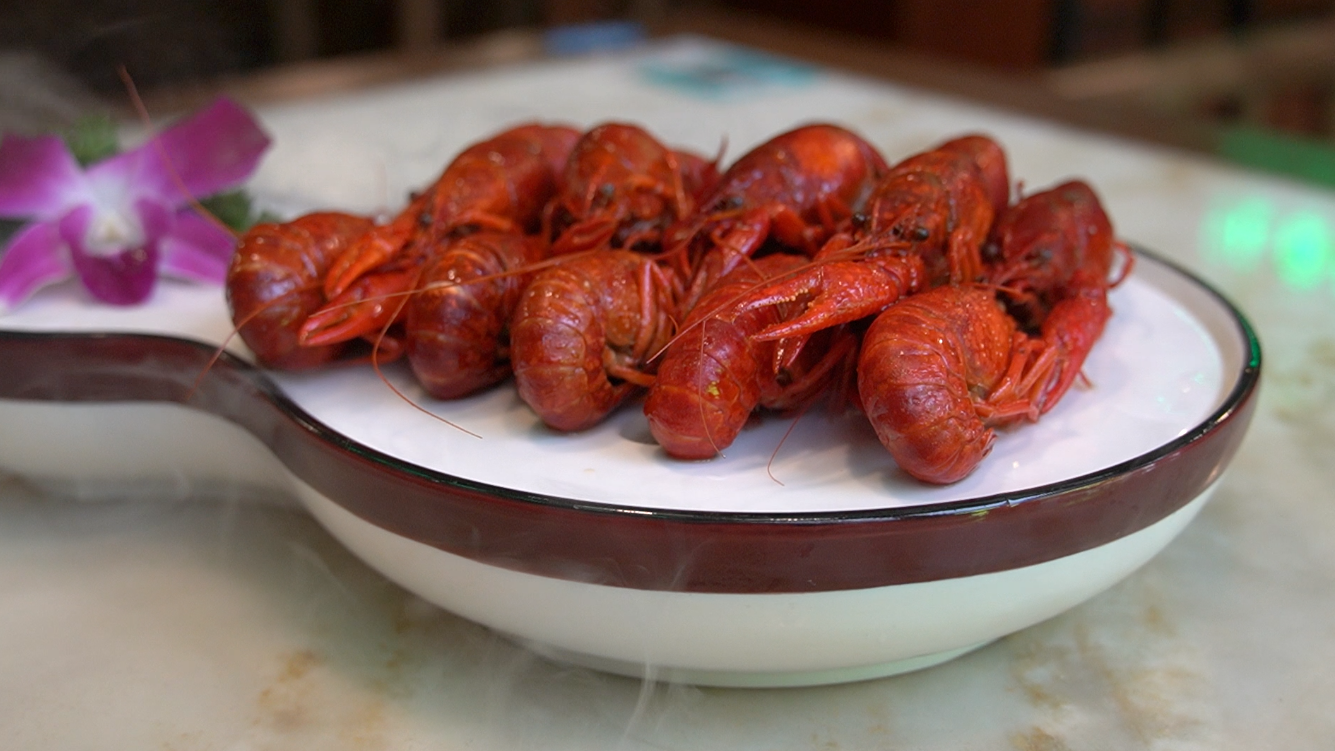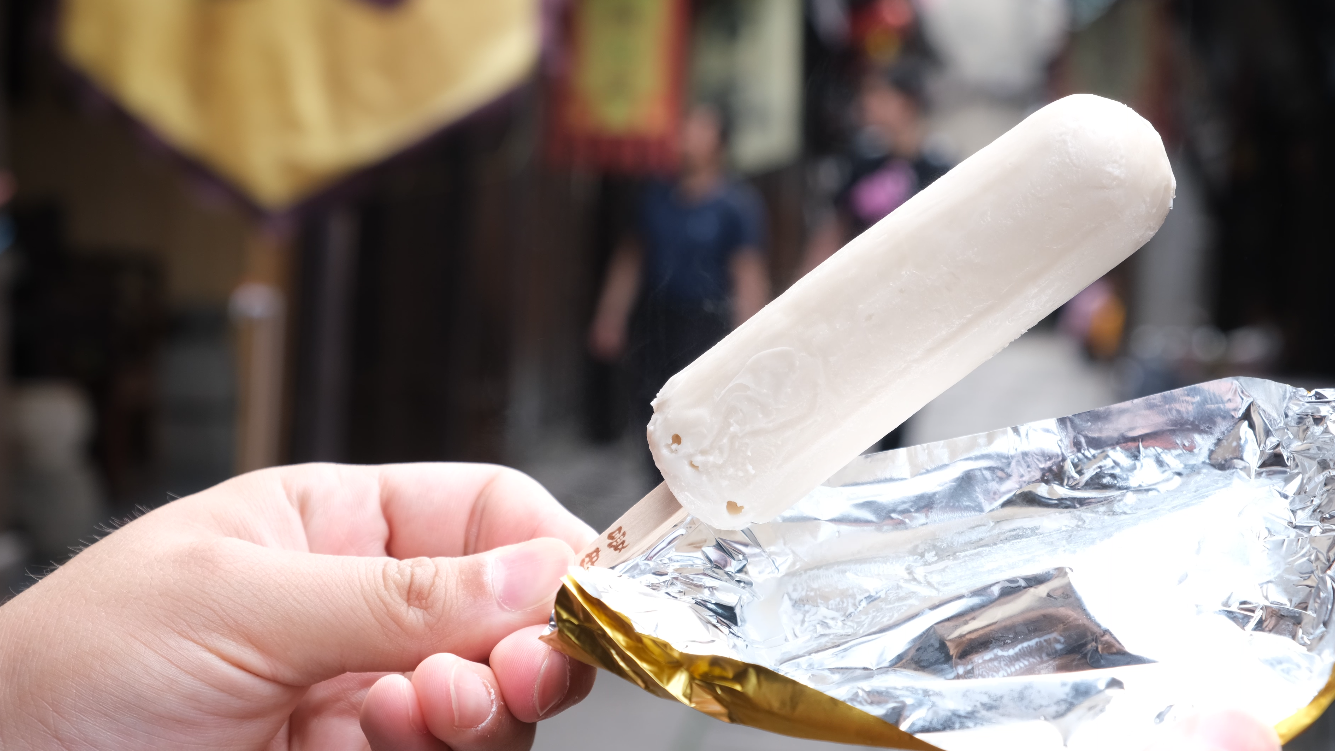02:12

The yellow rice wine, also known as "huangjiu" in Chinese, is regarded as one of the world's three major ancient alcoholic drinks – together with beer and wine. Widely known all over China, the grain-fermented drink is a staple of Shaoxing, a city in east China's Zhejiang Province. While sticking to its classic uses, over the years, people in Shaoxing have explored various new recipes for the yellow rice wine.
Head chef Chen Long, a 24-year-old man hailing from Shaoxing, cooks with yellow rice wine daily.
"Crabs or shrimps pickled with yellow rice wine are often on traditional Chinese menus. We also have more innovative recipes like chicken steamed with yellow rice wine," Chen said.

Crayfish pickled with yellow rice wine. /Li Xiquan
Crayfish pickled with yellow rice wine. /Li Xiquan
Yellow rice wine is often used for seasoning. Its alchohol content is low, ranging from 14 to 20 percent. Once sealed in clay jars, it has a decades-long shelf life, mellowing with age. The brewcraft of the yellow rice wine has been passed down for more than 2,500 years. Its ancient craft is designated as one of China's national intangible cultural heritage.
In the past, people used to unseal aged yellow rice wine on their children's coming-of-age day ceremonies. Like a time capsule, the wine carries people's best wishes for life.
For today's millennials, however, this centuries-old heritage is nothing more than an old-fashioned drink. For many, beer or grape wine are the more popular drink of choice.
Attempting to revive yellow rice wine, winemakers are reshaping its image. Yellow rice wine-flavored popsicles, yogurt, or even milk tea, are the new trend among young adults in Shaoxing.

Yellow rice wine-flavored popsicle. /Li Yuanyuan
Yellow rice wine-flavored popsicle. /Li Yuanyuan
"The milk tea has a flavor of Shaoxing. It is very distinctive," one of the customers said.
Ruan Shuai, deputy director of marketing at Yellow Wine Museum of China, said, "We have introduced fashionable packaging and positioning to provide a new product image of yellow rice wine to consumers."
To rejuvenate the treasured drink, Shaoxing Yellow Rice Wine Association holds an annual yellow rice wine carnival, catering to millennials. It also adopts new marketing strategies, such as engineered photo opportunities made for social media and live performances with rock bands. Now public perception is gradually changing.
"To Shaoxing people, yellow rice wine can be a sustenance with an emotional attachment to it and a lifestyle. We want to give it a new meaning, passing it down from generation to generation," Ruan said.
(Huang Yujie, Hou Guodi, Li Yuanyuan, Li Xiquan, and Liu Zhiyun also contributed to the story.)

